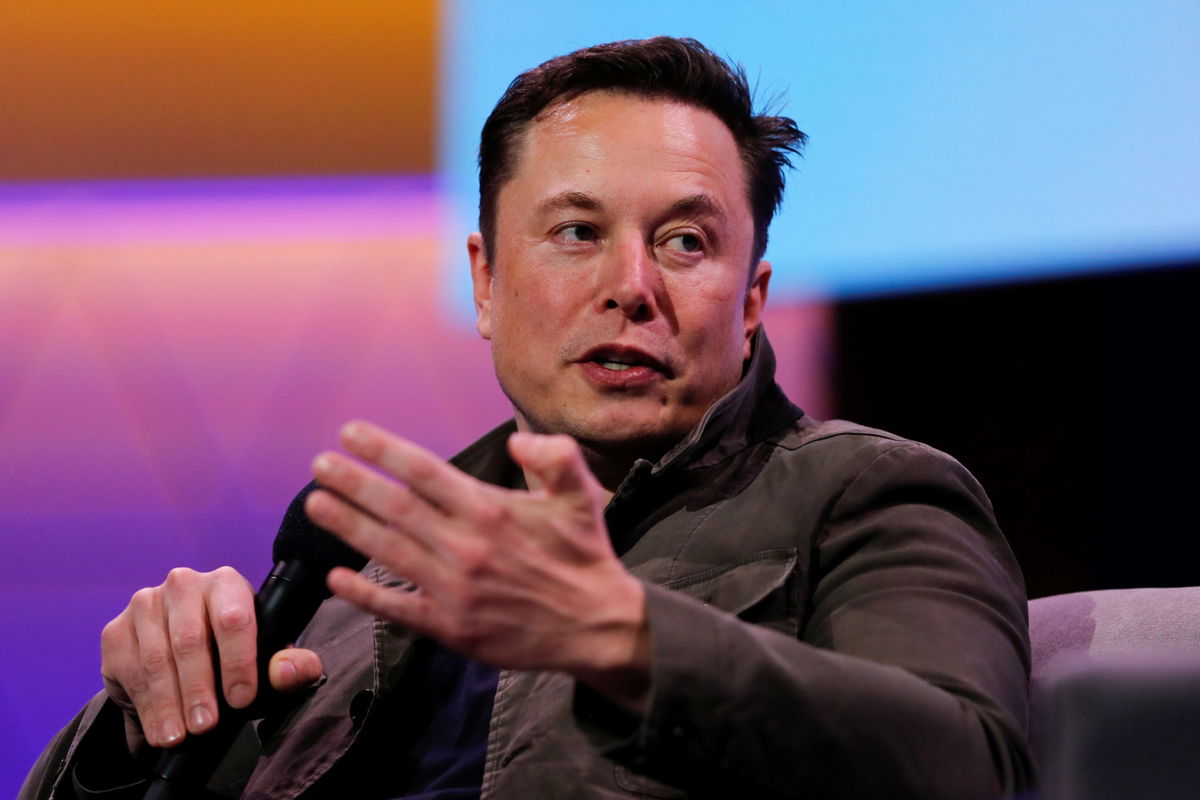
Reuters
SpaceX owner and Tesla CEO Elon Musk gestures during a conversation with legendary game designer Todd Howard (not pictured) at the E3 gaming convention in Los Angeles, California, U.S., June 13, 2019. REUTERS/Mike Blake

Reuters
SpaceX owner and Tesla CEO Elon Musk gestures during a conversation with legendary game designer Todd Howard (not pictured) at the E3 gaming convention in Los Angeles, California, U.S., June 13, 2019. REUTERS/Mike Blake
Have you ever found yourself scrolling through your Twitter feed and coming across graphic and violent videos that make you uncomfortable? Professional boxer Sunny Edwards recently took to Twitter to express his concern about the impact these videos may have on people’s impression of the world. In a tweet directed at none other than Elon Musk, Edwards questioned whether the prevalence of such content on social media is simply a reflection of the lockdown behaviors in some individuals, or if there is more to it than meets the eye.
Watch What’s Trending Now!
The tweet sparked a conversation on the responsibility of social media platforms and the role they play in shaping our perception of reality. In this article, we explore Edwards’ concerns and delve into the broader debate around the ethics of sharing graphic content on social media. So sit tight and join us on this thought-provoking journey.
ADVERTISEMENT
Elon Musk faces criticism over Twitter’s failure to control violent content
On March 17th, 2023, professional boxer Sunny Edwards took to Twitter to express his distress at the amount of violent content he’s been seeing on the platform. He tweeted, “Anyway I can stop seeing videos of people getting stabbed, shot or axed in the head please @elonmusk. I feel like it’s having a direct impact on my impression of the rest of the world. Or is this a way to mirror lockdown behaviours in some people 🤷🏼♂️.”
Any way I can stop seeing videos of people getting stabbed, shot or axed in the head please @elonmusk
I feel like it’s having a direct impact on my impression of the rest of the world. Or is this a way to mirror lockdown behaviours in some people 🤷🏼♂️
— Sunny Edwards (@SunnyEdwards) March 17, 2023
Shortly after, Edwards followed up with another tweet stating, “I don’t even like seeing them in the WhatsApp group chat but I haven’t seen a day on Twitter since @elonmusk without seeing someone lose their lives.”
ADVERTISEMENT
I don’t even like seeing them in the WhatsApp group chat but I haven’t seen a day on Twitter since @elonmusk without seeing someone lose their lives.
— Sunny Edwards (@SunnyEdwards) March 17, 2023
Edwards’ tweets have drawn attention to a consequential predicament that frequently goes unnoticed within our society: the adverse effects that the experience of violent content can have on an individual’s mental state.
ADVERTISEMENT
It is crucial to recognize that not all individuals can tolerate graphic content similarly, and it is essential to take precautionary measures to protect those who may be more vulnerable to such exposure.
Top Stories
Boxing Fight Purse: How Much Are Teofimo Lopez, Shakur Stevenson, Keyshawn Davis, and Others Earning?

MSG Official Threatens to Ban for Life After Team Haney, Tiger Johnson Brawl at Teofimo-Shakur Weigh-Ins

“I’m Suppose to Be Muslim”: Shakur Stevenson Opens Up on His Religious Beliefs, Reveals His Full Name

Who Are Shakur Stevenson’s Parents? Details About Father, Mother & Family

Shakur Stevenson’s Ethnicity, Flag, Religion & Other Details About His Roots

Watch this story: Elon Musk twitter agenda set to affect NASCAR star Chase Elliott.
Apart from the matter of mental health, there is also a matter of desensitization. As we expose ourselves to more violence, it becomes more normalized, and our reactions to it lessen. This can lead to significant consequences when it comes to dealing with violence and crime in our society.
ADVERTISEMENT
Sunny Edwards’ tweets serve as a reminder for all of us that the content we choose to see and share on the internet is not just a matter of personal preference, it’s crucial to consider the impact that our posts can have on others, especially when it comes to potentially traumatic content.
In conclusion, the prevalence of violent content on social media platforms is a cause for concern, as highlighted by Sunny Edwards’ tweets calling on Elon Musk to take action.
Read More: A Complete Timeline of MrBeast and Elon Musk’s Friendship
ADVERTISEMENT
ADVERTISEMENT
ADVERTISEMENT
ADVERTISEMENT